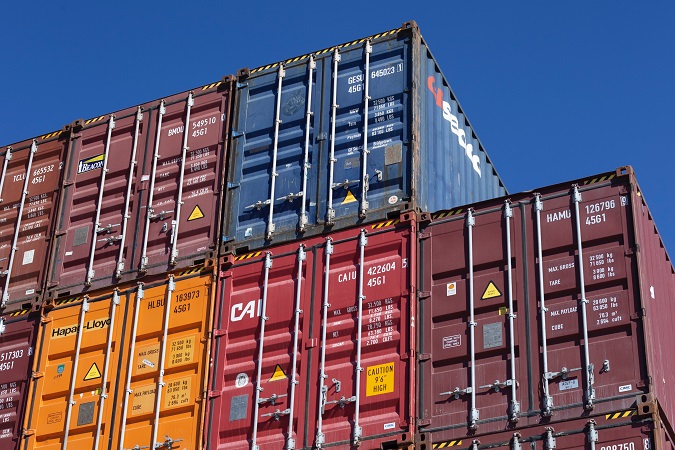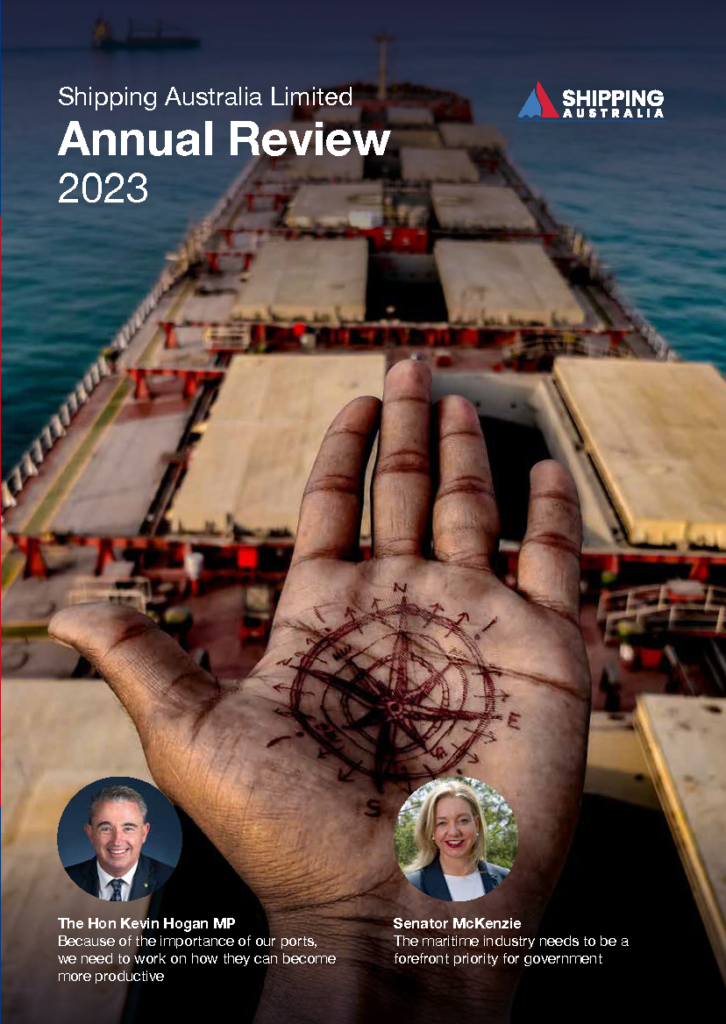
Australia’s container ports are near-completely failing Australian exporters, importers, shippers, shipping lines and society in general because they have terrible on-the-job performance.
That’s the only conclusion that can be drawn from a recent assessment of comparable container port performance released by the World Bank, in association with internationally respected analyst firm IHS Markit.
All of our container ports, except Brisbane, are in the 25% of the worst-performing container ports in the world. In fact, our container ports are not just in the lower 25%, they are near the bottom of the lowest 25%!
Brisbane just about scrapes into the second-from-bottom 25% of the worst-performing box ports in the world. Which means that all of our main container ports are in the bottom 50% of box ports in the world when ranked by performance.
The World Bank / IHS ranked container ports using two approaches: the “statistical” approach and the “administrative approach”. The report explains that “the rationale of using two methodologies… is to ensure that rankings reflect as closely as possible actual port performance, while also being statistically robust”.
As you will shortly see, our box ports were dreadful performers under both approaches:
| Rank | Port | Score (Administrative Approach) | Difference in score Yokohama vs each Australian port | % difference Yokohama vs each Aus port |
| 1 | Yokohama | 130 | ~ | ~ |
| 234 | Brisbane | -8 | 138 | 226 |
| 313 | Melbourne | -40 | 170 | 378 |
| 319 | Fremantle | -59 | 189 | 532 |
| 327 | Sydney | -63 | 193 | 576 |
| 333 | Adelaide | -78 | 208 | 800 |
| Rank | Port | Score (Statistical Approach) | Difference Yokohama vs each Australian port | % difference Yokohama vs each Aus port |
| 1 | Yokohama | -5.995 | ~ | ~ |
| 246 | Brisbane | 0.569 | 6.564 | 242 |
| 302 | Melbourne | 1.676 | 7.671 | 355 |
| 326 | Fremantle | 2.716 | 8.711 | 531 |
| 337 | Sydney | 3.907 | 9.902 | 948 |
| 339 | Adelaide | 4.546 | 10.541 | 1,455 |
As an island nation, Australia is particularly reliant on international container ports for our imports and exports of containerised goods. Our container ports handle about eight million TEU containerised cargo each year. Our top three container ports are Melbourne (3.0 million TEU), Sydney (2.6 million TEU) and Brisbane (1.3 million TEU). Together, they handle 86.25% of all of our container trade. Fremantle (800 thousand TEU) and Adelaide (330 thousand TEU), are our other two main ports and handle most of the remainder of our trade. There are some small volumes of containers handled elsewhere at non-container ports but we only note these in passing and take no further account of them here.
For our main container ports to be such poor performers ought to be unacceptable to just about every Australian. As the World Bank / IHS assessment notes: “since the dawn of maritime trade, maritime ports have been central to economic and social development… more specifically, how a maritime port performs is a crucial element in determining a country’s trade costs. Poorly performing ports constrain trade growth”.
COVID lockdowns and the decline of international travel appear to have induced an extremely high demand for consumer goods. This extremely high surge in demand was unforeseen by the vast majority of people.
Ocean shipping companies (i.e. the companies that carry seaborne cargo) have been, and are, responding to extremely high demand. They have employed the previously unused spare capacity in the world fleet of box ships, they have reduced the scrapping rates of container ships, they have hired-in non-specialist ships to carry containers and they have made huge orders for new containers and new ships.
All of these actions and investments have been done / made with the aim of increasing container shipping supply so as to match demand and to therefore help customers. It is likely that the supply of container shipping capacity will eventually catch up to the demand for capacity – this dynamic has played out over the last few hundred years of recorded ocean shipping history, and it seems unlikely to change now.
While there are many excellent box ports around the world, Yokohama (Japan) and King Abdullah Port (Saudi Arabia) particularly spring to mind, unfortunately, international shippers and ocean shipping companies have been extremely let down by the poor performance of many other container ports.
Australian container ports’ performance has been especially poor.
Local box ports have proven to be unable to meet the high demand for the carriage of containerised goods. Many box ports appear to have an inability to adequately handle container ships and the increased container trade, which, if you think about it, is a pretty huge failure for container ports.
Accordingly, it appears that we will all have to live with the delays and difficulties caused by poor box port performance for some time.
Ships calling at Australia today may have to wait a little time before being berthed but last year there were literally weeks of delay! Even one day of delay is significant: one day of delay can cost shipping companies AUD$91,000! Several days of delay throws schedules completely out of the window and generally causes disruption and frustration to shippers of cargo.
It should be remembered that ships normally sail on “loops” i.e. they have a series of ports that they will call at in different countries and the ships eventually return to the first port of call in the loop. So when overseas container ports are congested, that causes a knock-on effect that puts ships off-schedule right around the loop and which also causes congestion right around the loop.
Think of it this way: congestion is contagious.
Right now there is extreme congestion in China, congestion all over southeast Asia, congestion in the U.S. (especially the West Coast) and huge congestion in New Zealand (15 to 20 days!). This causes massive problems in Australia, massive problems for trans-shipment cargo of all kinds around the world, and massive problems for shipping companies and shippers of cargo alike.
Shipping companies have various tools that they can use to minimise the effect of container port congestion on their operations (and therefore on their customers’ cargo) such as increasing / decreasing speed, skipping ports of call, changing the order of ports of call and changing the frequency of ports of call. There are other options. However, sometimes the container port congestion gets so bad that the only option is to cancel planned sailings (called “blankings” in the trade).
Ultimately, we need one of two things to happen. Either the complete roll-out of a world-wide anti-COVID vaccination programme, or for the lesser-performing container ports to get their act together and to manage their poor performance which is so damaging to the global economy.
We think the complete vaccination of the eight billion people who make up the world population is much more likely to happen first.
We need Australian container ports to massively improve their performance – and quickly – because their poor performance is holding back the exporters of Australia and Australian families generally.


